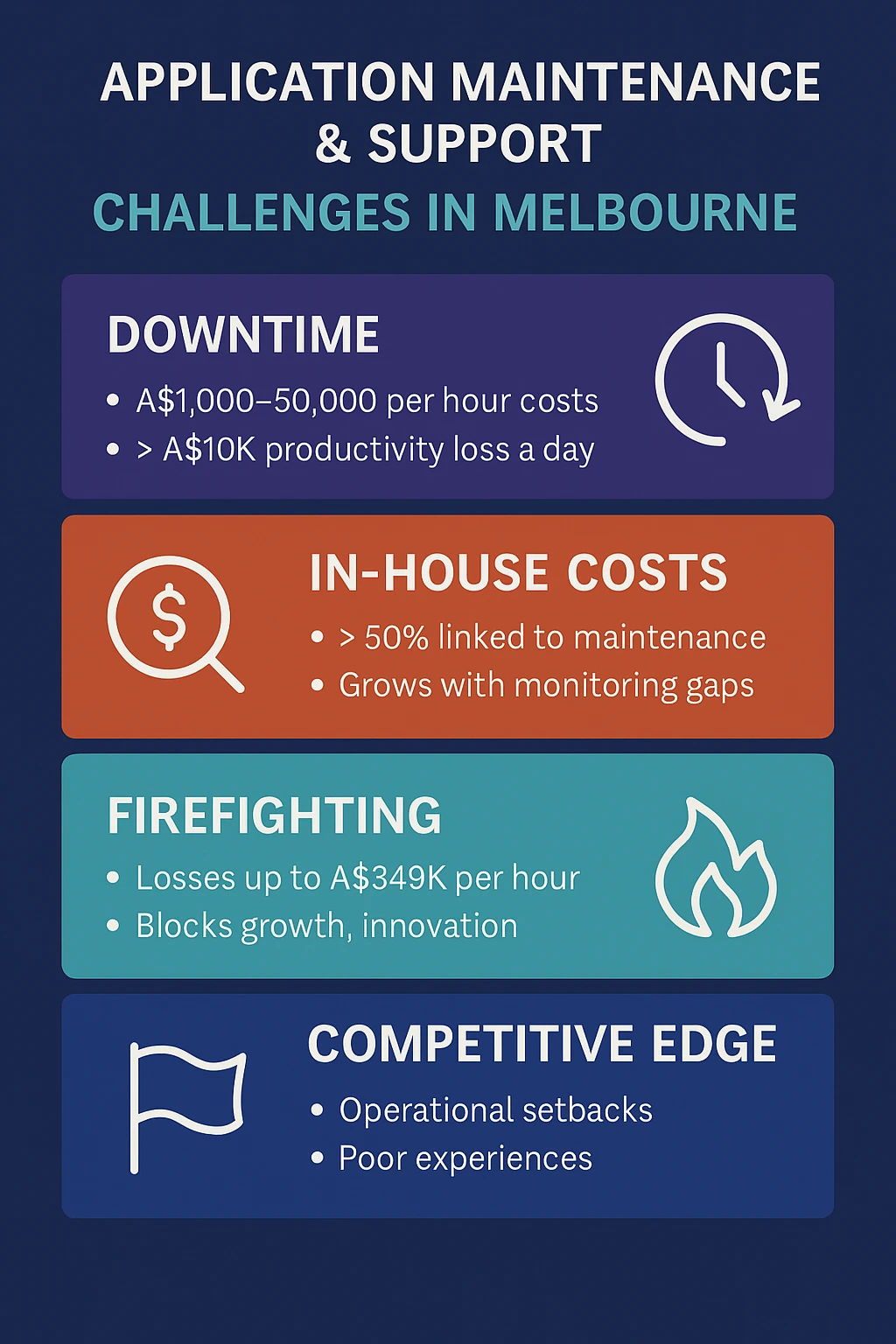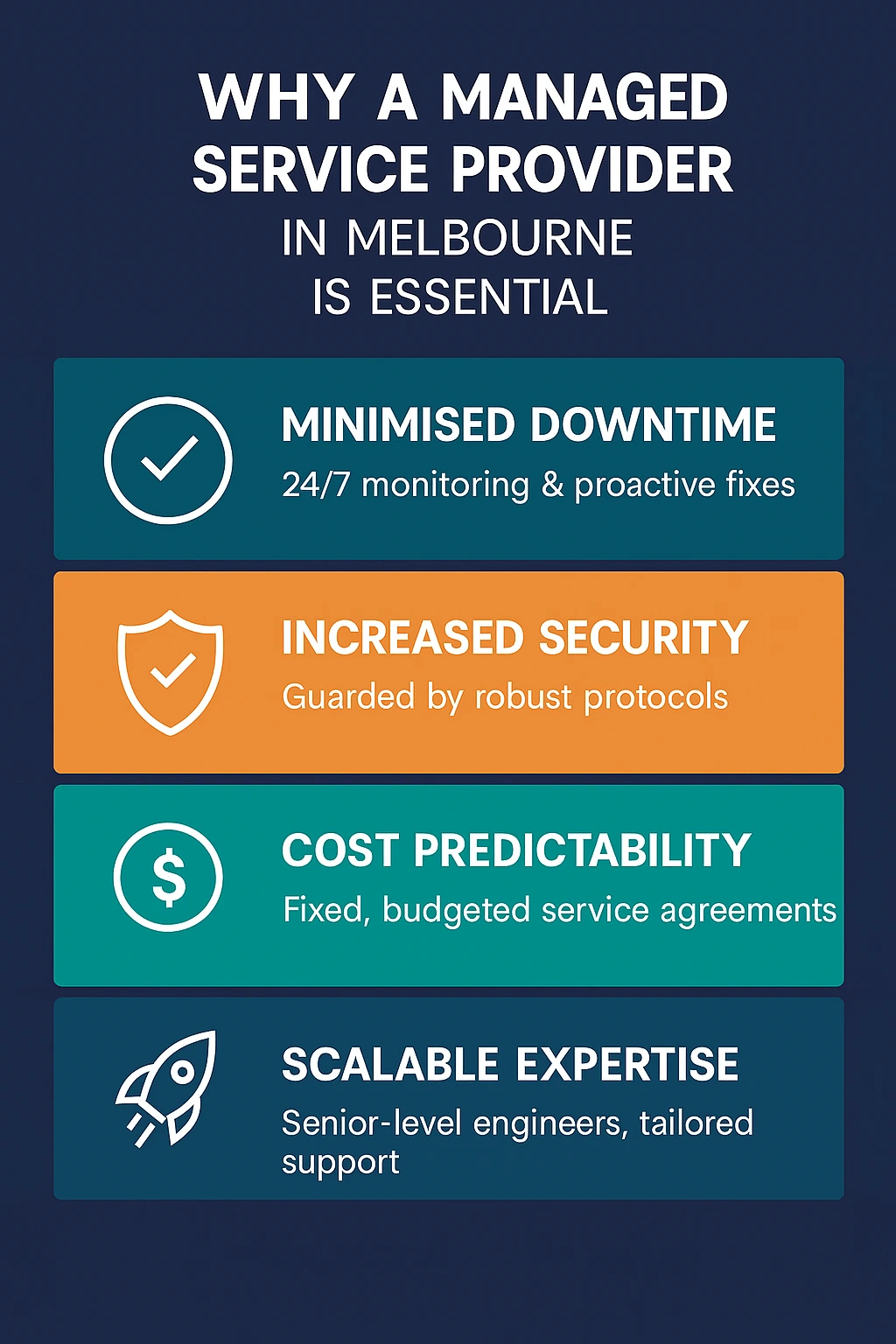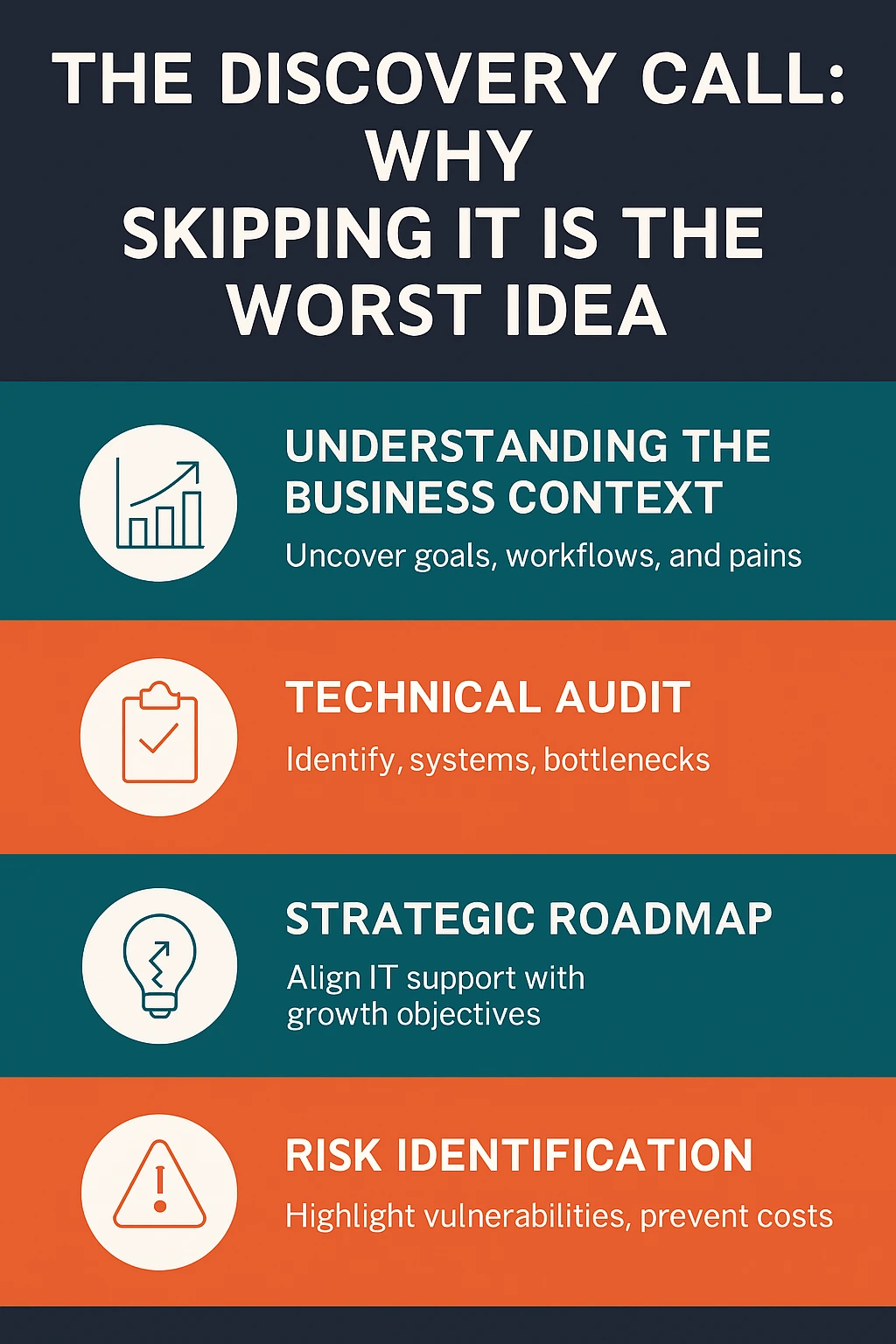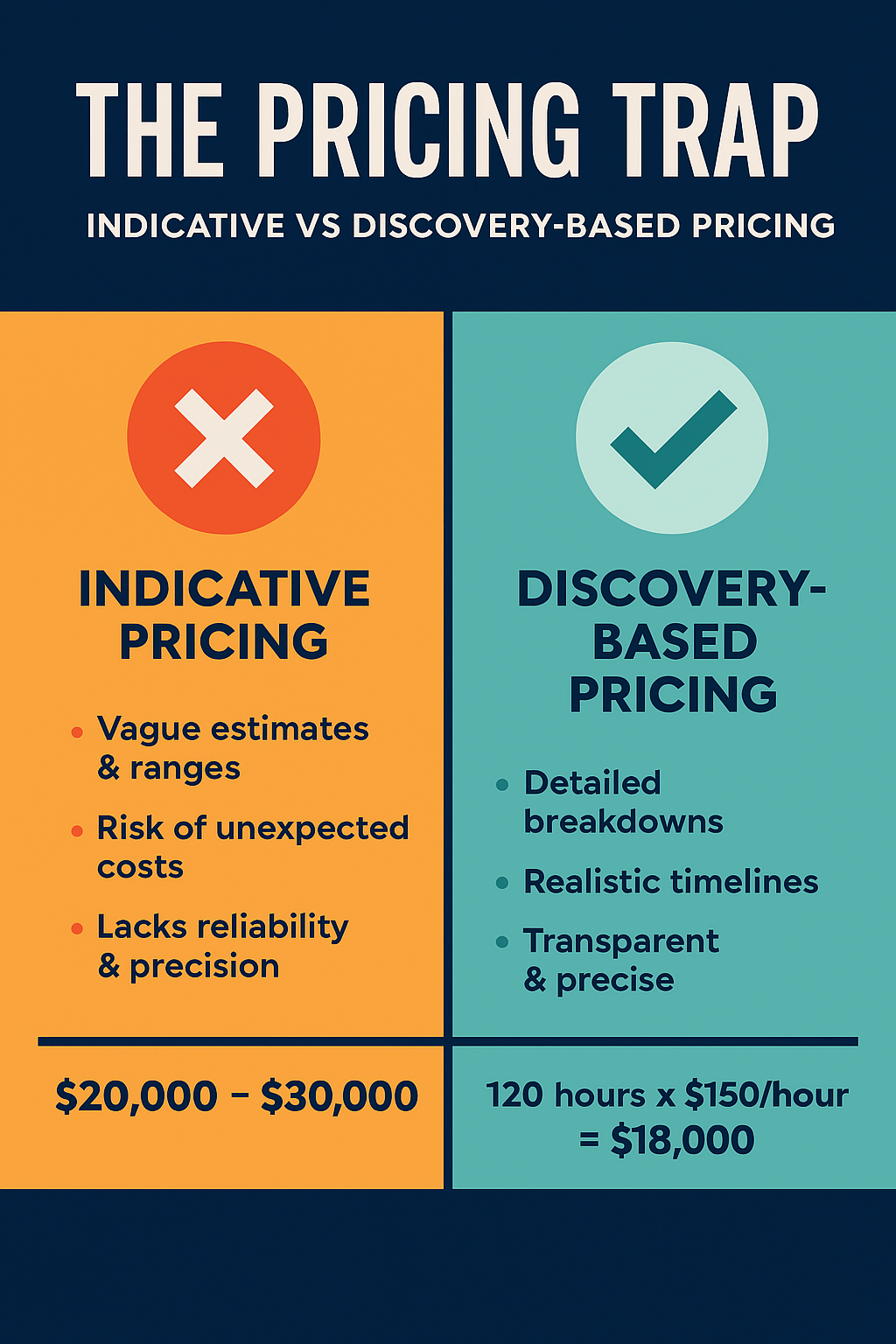In today's fast-paced digital landscape, Melbourne businesses are grappling with increasingly complex systems that power everything from customer interactions to internal operations. As organisations in sectors like retail, manufacturing, and professional services expand, their reliance on software applications grows exponentially. Yet, this complexity often leads to unforeseen challenges that can cripple productivity and erode profits.
Imagine a bustling Melbourne SME in the heart of the CBD, where a sudden application glitch halts order processing during peak hours. Frustrations mount as executives deal with downtime, escalating costs from ad-hoc fixes, and the constant dread of inefficient support that fails to keep pace with business demands. These pain points are all too common, with Australian organisations losing an estimated AU$86 billion annually due to unplanned downtime and cybersecurity incidents. For Melbourne executives, who are detail-oriented and driven to maximise efficiency, such disruptions translate to lost revenue, damaged customer trust, and unnecessary stress.
This is where a managed service provider (MSP) in Melbourne emerges as a strategic partner, offering reliability, scalability, and peace of mind through specialised application maintenance and support. Unlike generic off-the-shelf solutions, an MSP like C9 tailors its approach to your unique business needs, ensuring seamless integration and proactive care. In this blog, we'll delve into why MSPs are indispensable for Melbourne businesses, the critical role of discovery calls in aligning solutions, and the dangers of falling for indicative pricing traps. By the end, you'll see how partnering with C9—a leader in custom software, apps, integration, and database development—can transform your operations from reactive firefighting to innovative growth.
Application Maintenance & Support Challenges in Melbourne

Melbourne's vibrant business scene, from innovative startups in Docklands to established enterprises in South Yarra, thrives on technology. However, maintaining and supporting applications presents significant hurdles that many executives underestimate until it's too late.
Frequent downtime is a primary culprit, disrupting operations and leading to cascading effects. According to recent data, the average cost of IT downtime for small to medium enterprises (SMEs) in Australia ranges from $1,000 to $5,000 per hour, with some reports escalating this to $10,000–$50,000 per hour for mid-sized businesses. In Melbourne's competitive market, where industries like finance and e-commerce operate around the clock, a single day of downtime can result in losses exceeding $10,000 in productivity alone. For instance, a local retail firm might lose critical sales during a system outage, while a manufacturing plant faces halted production lines, amplifying costs through idle labour and missed deadlines.
Compounding this is the rising expense of in-house IT teams. Building and maintaining an internal support structure demands substantial investment—salaries for skilled engineers, ongoing training, and infrastructure overheads. Studies show that over 50% of a company's IT infrastructure costs are tied to software maintenance and support, yet many Melbourne organisations lack the resources for proactive monitoring. This leads to a reactive 'firefighting' approach, where issues are addressed only after they escalate, further straining budgets and teams.
These challenges don't just hit the bottom line; they erode customer trust and heighten executive stress. A Splunk survey reveals that Australian businesses face up to AU$86 billion in losses from downtime, with industrial sectors in Melbourne potentially losing $349,000 per hour during critical outages. Imagine missing growth targets because outdated legacy systems can't integrate with new tools, or watching competitors surge ahead with seamless tech capabilities while your team battles inefficiencies. For analytical executives, this constant uncertainty around operational costs and poor customer experiences triggers a cycle of frustration, resistance to change from employees, and barriers like limited internal expertise.
Without intervention, these pains intensify, turning minor glitches into major setbacks that hinder profitability and competitive advantage.
Why a Managed Service Provider in Melbourne is Essential

Enter the managed service provider (MSP)—a specialised partner that takes over the heavy lifting of application maintenance and support. In the context of Melbourne businesses, an MSP provides outsourced expertise to monitor, maintain, and optimise software systems, ensuring they run smoothly without the burden of in-house management.
The benefits are multifaceted and directly address the pains outlined. First, 24/7 monitoring and proactive fixes minimise downtime, with MSPs using advanced tools to detect issues before they disrupt operations. This leads to increased productivity and improved security, as providers implement robust protocols to safeguard against threats. Cost predictability comes through fixed service agreements, eliminating the volatility of ad-hoc repairs and allowing executives to budget effectively.
Melbourne businesses also gain access to senior engineers without the full-time salaries, enabling scalability as operations grow. For instance, an MSP can handle everything from routine updates to complex integrations, filling gaps in internal expertise and enhancing operational efficiency. Research indicates that organisations using MSPs experience lower overall costs and better alignment of IT strategies with business goals, thanks to expert advice on emerging technologies.
What sets C9 apart in Melbourne's MSP landscape is our focus on custom software, apps, integration, and database development. We go beyond generic MSPs by tailoring solutions to your business-critical systems. Whether it's streamlining workflows for a Docklands fintech firm or integrating databases for a Southbank manufacturer, C9 acts as a collaborative partner, delivering innovative, trustworthy solutions that drive higher revenues and reduce costs. Our approach ensures secure, reliable products that foster long-term loyalty, positioning your organisation for sustained growth in a data-driven world.
The Discovery Call: Why Skipping It Is the Worst Idea

Many Melbourne executives view discovery calls as an unnecessary time sink, especially when pressed by tight schedules and competing priorities. This pain stems from past experiences with pushy vendors or the perception that such calls are mere sales pitches.
However, skipping them aggravates the problem exponentially. Without a discovery call, expectations misalign, leading to ill-fitting solutions, wasted budgets, and prolonged frustrations. For example, jumping straight into a project without understanding your workflows can result in overlooked bottlenecks, causing costs to balloon and timelines to stretch—exacerbating the very inefficiencies you're trying to fix.
The solution lies in embracing discovery calls as the blueprint for success. At C9, our 30–60 minute sessions are structured to deliver immediate value:
- Understanding the Business Context: We uncover your goals, workflows, and pain points, ensuring solutions are aligned with your Melbourne-specific operations, like navigating local regulations or scaling for seasonal demands.
- Technical Audit: A thorough review of current systems, integrations, and bottlenecks identifies inefficiencies, such as legacy software hindering data flow.
- Strategic Roadmap: We align IT support with your growth objectives, whether it's boosting efficiency or gaining a competitive edge through custom apps.
- Risk Identification: Highlighting hidden vulnerabilities, like security gaps, prevents costly surprises down the line.
A single discovery call can save weeks of wasted development and thousands in misaligned costs, building trust from the outset and setting the stage for collaborative success.
The Pricing Trap: Indicative vs Discovery-Based Pricing

Indicative pricing—those vague estimates like “$20,000–$30,000”—lures many Melbourne businesses with the promise of quick answers. The pain here is the illusion of simplicity, often masking underlying uncertainties.
But this agitates further: indicative figures are based on rough guesses, leading to misleading expectations and mid-project escalations. For instance, a quoted “$25,000 ± 20%” could balloon to over $30,000 as unforeseen issues arise, eroding trust and straining budgets. In software development, where scopes evolve, these models often result in disputes and suboptimal outcomes.
The superior solution is discovery-based pricing, which ensures accuracy and fairness through detailed scoping. After a discovery call, projects are broken down precisely—e.g., 120 hours at $150/hour equalling $18,000—tied to clear deliverables. This transparency reduces risk, with calculations to the nearest hour or day, fostering accountability.
Why does discovery win? It breaks projects into stages for early ROI, allows reinvestment of savings, and builds trust—ideal for persuasive, driven executives wary of high costs or past vendor letdowns.
Case for ROI: Breaking Projects into Stages
To maximise ROI, C9 advocates breaking software projects into measurable stages, a strategy that delivers incremental value and aligns with business goals.
Stage 1: Stabilise and Maintain Existing Applications. Focus on immediate fixes to reduce downtime, yielding quick ROI. With Australian SMEs facing average downtime costs of $3,500 monthly, this stage can save thousands from day one.
Stage 2: Optimise Integrations. Enhance data flow and efficiency, cutting operational costs and boosting productivity—often realising 20% ROI typical for software projects.
Stage 3: Scale with New Features. Reinvest savings into growth-oriented enhancements, like custom apps, driving revenues and competitive advantages.
This phased approach, informed by discovery, ensures each step is profitable and risk-averse, with milestones for tracking progress. Studies show it reduces overall risks and aligns IT with strategic objectives, delivering measurable returns before full completion.
Conclusion
Melbourne businesses can't afford the pains of downtime, vague pricing, or reactive IT in a market demanding efficiency and innovation. A managed service provider in Melbourne like C9 reframes these challenges into opportunities, providing proactive support, accurate pricing, and staged ROI through custom solutions.
Don't settle for mediocrity—book your discovery call with C9 today. Avoid the gamble of indicative pricing; let's scope your project properly, reduce risks, and unlock ROI from day one. Visit https://www.c9.com.au/ or contact us to start your journey towards operational excellence.